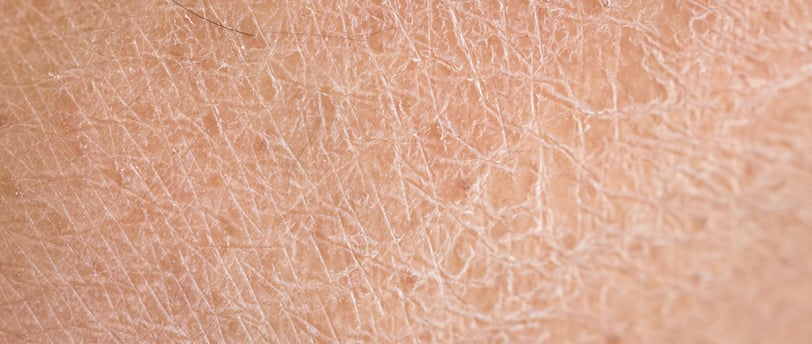Dry Skin: Causes, Symptoms, and Skincare Tips
Dry skin is a common concern that affects people of all ages and backgrounds. It’s characterized by a lack of moisture and natural oils, which leads to roughness, flakiness, tightness, and sometimes even itching or discomfort. Recognizing and properly caring for dry skin is essential for maintaining comfort, preventing irritation, and supporting a healthy skin barrier.


What Is Dry Skin?
Dry skin, also known as xerosis or xeroderma, occurs when your skin loses moisture and essential lipids (fats) in the outermost layer. This can make your skin feel tight, rough, or itchy, and it may appear dull, flaky, or even cracked in more severe cases. Dry skin can be temporary, such as during cold winter months or a persistent, year-round condition.
Common Causes of Dry Skin
Several factors can contribute to dry skin, including:
Weather: Cold, dry air and low humidity strip moisture from the skin.
Hot Water: Frequent hot showers or baths can remove natural oils.
Harsh Soaps and Cleansers: Products that strip oils can worsen dryness.
Aging: As we age, skin produces less oil, making dryness more likely.
Medical Conditions: Eczema, psoriasis, and other conditions can cause or worsen dryness.
Other Factors: Sun exposure, dehydration, and certain medications may also play a role.
How to Recognize Dry Skin
Signs and symptoms of dry skin include:
A feeling of tightness, especially after washing
Rough, flaky, or scaly patches
Itching or discomfort
Fine lines, cracks, or even bleeding in severe cases
Redness or irritation, especially if the skin is scratched or inflamed
Why Is It Important to Know Your Skin Type?
Understanding that you have dry skin helps you:
Choose the Right Products: Hydrating and gentle formulas with ingredients like hyaluronic acid, ceramides, and glycerin are best for dry skin.
Avoid Irritation: You can steer clear of harsh cleansers and alcohol-based products that worsen dryness.
Prevent Complications: Proper care reduces the risk of cracks, infections, and discomfort.
Customize Your Routine: Dry skin needs regular moisturizing, gentle cleansing, and protection from harsh weather and sun.
Skincare Tips for Dry Skin
Use a gentle, fragrance-free cleanser that doesn’t strip natural oils.
Apply a rich moisturizer immediately after bathing to lock in moisture. Read more.
Limit hot showers and keep bathing time short.
Use a humidifier in dry environments to add moisture to the air.
Protect your skin from harsh weather and always use sunscreen.
Drink plenty of water to stay hydrated from within.
When to See a Dermatologist
If your dry skin doesn’t improve with home care, becomes painful, or shows signs of infection (such as redness, swelling, or pus), consult a dermatologist for specialized treatment.
Dry skin can be uncomfortable, but with the right knowledge and routine, you can restore comfort and achieve soft, healthy-looking skin. Understanding your skin type is the first step toward choosing the best care for your unique needs.
